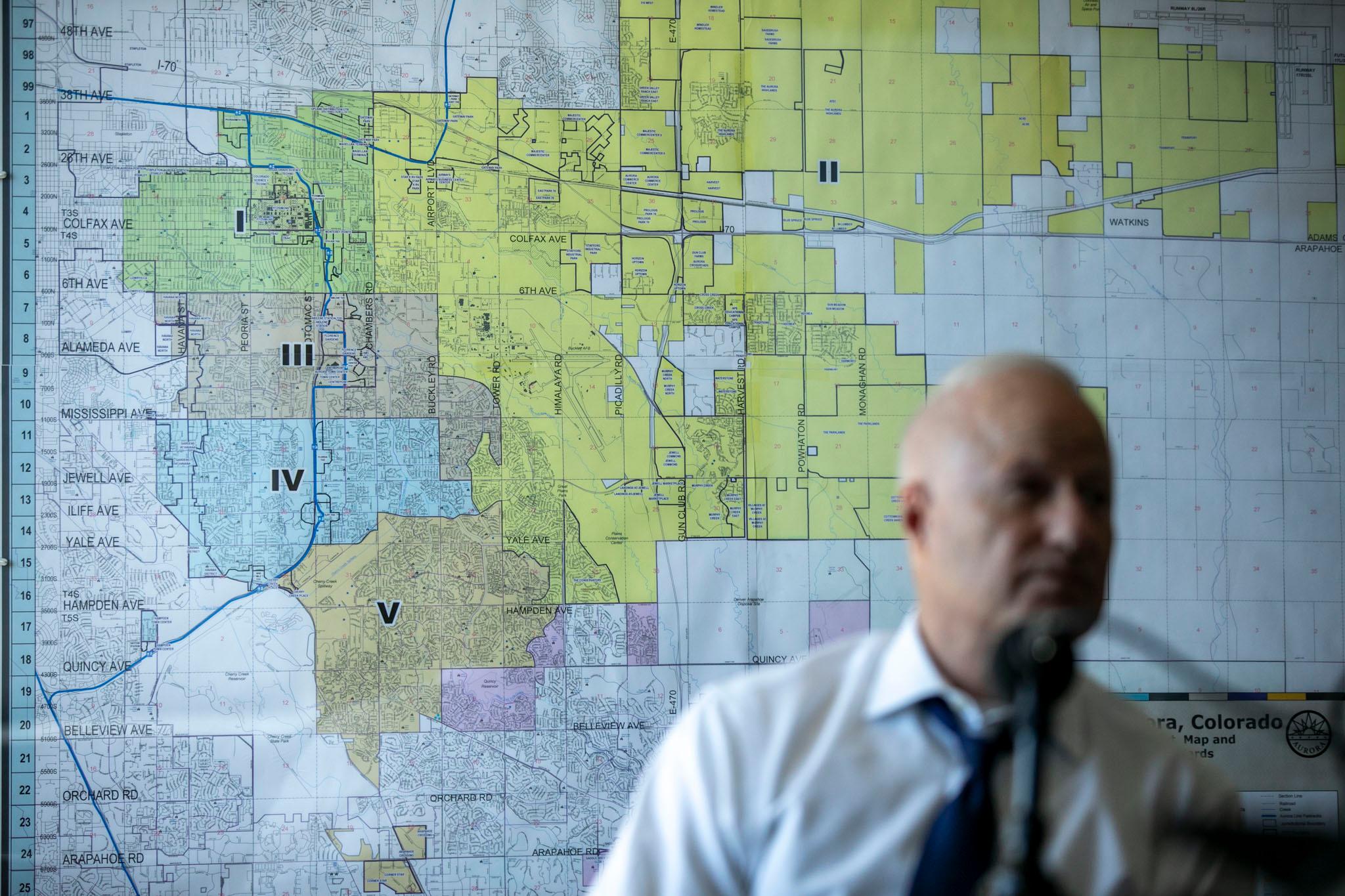This story was originally published in Sentinel Colorado.
By Susan Greene, Sentinel Reporter in Residence/Sentinel Colorado
Mayor Mike Coffman started his state of the city speech Tuesday by lamenting one of the worst black eyes Aurora has endured since the 2012 theater shooting: A false narrative by Donald Trump and far-right Republicans this campaign season that Venezuelan gang members have overrun the city.
“To let that narrative stand has consequences to the city, real consequences for businesses that are thinking about moving here, for conventions that are thinking about coming here,” he said. “What is important as mayor is to stand up and to never, never let anyone sacrifice the interest of this city for a political campaign. Never, never.”
Following applause from hundreds of attendees at the Rotary Club of Aurora’s annual luncheon at the Hyatt Regency Aurora-Denver Conference Center, the city’s Republican mayor went on to talk about an issue that has been a hallmark of his five years in office: redevelopment.
For 35 minutes, he spoke about three areas of the city he sees as ripe for revitalization efforts.
One is the eastern part of the former Lowry Air Force Base, which was closed in 1994 and deeded to the Colorado Community College System. Coffman noted that many of the buildings on the campus have gone unused, making the campus “a magnet for crime.” Now that deed restrictions on the property ran out in August, he supported efforts by Councilwoman Crystal Murillo to rezone it — a plan that would require approval by the state community college system, led by Chancellor Joe Garcia, the former Democratic lieutenant governor.
As Coffman told it, a rezoned and redeveloped Lowry site could have the kind of retail and housing draw spurred since the 2017 redevelopment of and around Stanley Marketplace about a dozen blocks to the north.
He also touted the transformation of the Fitzsimons Army Medical Center into the CU Anschutz Medical Campus, which he said employs 32,000 people. He called for using 50 acres on the north side of that property to build micro-sciences and other medical research buildings modeled after Boston’s 213-acre Longwood Medical and Academic Area, which he said employs 68,000 workers. Such a project, he said, could be a much needed “economic catalyst” for northwest Aurora.
Neighborhoods west and south of that area made headlines this summer for three blighted apartment buildings that Councilmember Danielle Jurinsky falsely claimed had been overrun by members of the Venezuelan prison gang Tren de Aragua, otherwise known as TdA. Although her narratives about the gang’s presence in those buildings and threat to the city more broadly generally have been debunked by Aurora police, that didn’t stop Trump from fear mongering about them during a campaign stop here earlier this month on a vow to launch “Operation Aurora” to use police and U.S. military to root out and deport undocumented immigrants not just from the city, but from all over the United States.
Without mentioning Trump by name Tuesday, Coffman referred to the former president’s remarks as “unfortunate.”
Most of the council’s 11 members attended the luncheon, although Jurinsky was absent.
Coffman ended his speech by calling for redevelopment on East Colfax Avenue from Yosemite Street to Interstate 225. His vision for that area includes a mix of market-rate and affordable housing that he said “could lift impoverished parts of the city.”
That strip of Colfax, which used to be the commercial and cultural center of Aurora, has been the target of several redevelopment efforts over the past six decades. It has become a mosaic of new buildings next to blighted motels, pawn shops, shuttered business and apartment complexes that several members of Aurora’s council say mars the city’s image and reputation.












